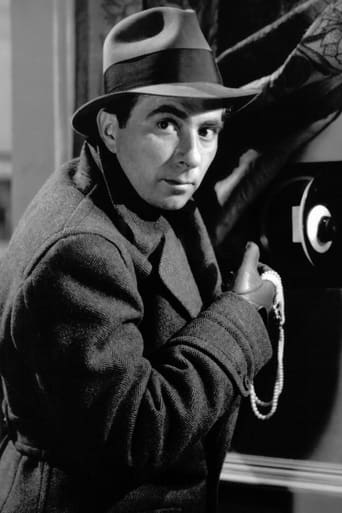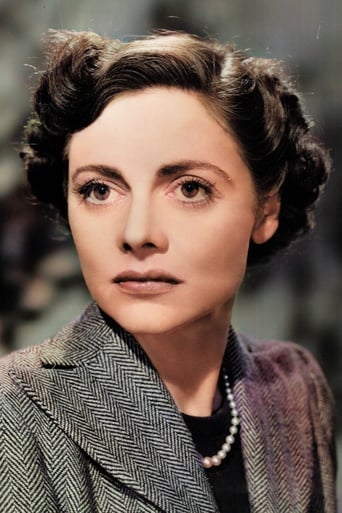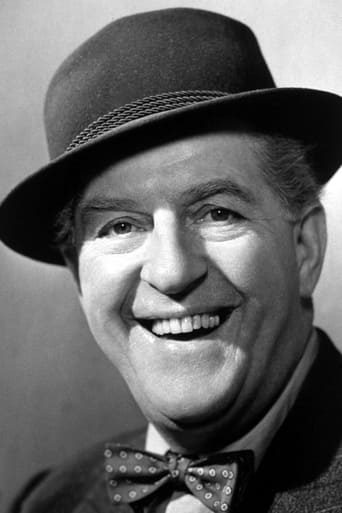Solemplex
To me, this movie is perfection.
GurlyIamBeach
Instant Favorite.
WillSushyMedia
This movie was so-so. It had it's moments, but wasn't the greatest.
Usamah Harvey
The film's masterful storytelling did its job. The message was clear. No need to overdo.
clanciai
This homely classic of Noel Coward and David Lean is like a corollary to Coward's earlier masterpiece "Cavalcade" 10 years earlier from the 1890s up to the thirties, but this is more concentrated on family life only, and although it's a small world there are some human dramas in it all the same, principally enacted by Kay Walsh as the young and flippant Queenie, the problem child of the family, courted by John Mills as a sailor, who is willing to sacrifice anything for her no matter how bad she behaves.The main actors are Celia Johnson and Robert Newton, though, matched by the inimitable Stanley Holloway, and some of the best scenes are with him, particularly the long scene of the farewell letter. Celia Johnson always made stark impressions as something of the ultimate woman and mother and more so here than ever. It's to the advantage of the film that there is not much of the outside world intruding on the cozy family life. Of course, there is some political engagement by one of the sons-in-law, the great strikes make themselves noticed, there is som fascist agitation at Hyde Park Corner, but there is nothing of the great depression, and none of the great political affairs disturb the family.One of their most charming ingredients is the case of the old mother. She is always discontent and finds a perfect partner to nag with in her unmarried daughter, Celia's sister, and Robert Newton is very categorical in his final comments on her case. It's a masterstroke of Noel Coward to make such a perfectly sour and negative person appear as the most hilarious part of the story.
lucyrfisher
As others have said, the story follows the Gibbons family in Clapham from 1919 to 1939. The central characters (the parents) are played stunningly by Robert Newton and Celia Johnson. Mr Gibbons is a bit like Polonius - always coming out with rather cliché'd advice. But his children hear his warmth and concern and support - which is what really matters. Mrs Gibbons is more acerbic and constantly trying to stop the others rowing.The old mother and widowed aunt are brilliant. Coward gets in some superb satire of both hypochondria and Christian Science (the aunt switches tack halfway through the story).I enjoyed the technicolour, because the clothes are PERFECT. For anyone interested in fashion history, this film has everything. The old mother, like Queen Mary, never updates her look from before WWI, favouring long skirts and "toques" (see Queen Mary's hats). The aunt is always slightly behind the times. Only Kay Walsh is slightly out of period - her Charleston dress has a waist! Tsk, tsk. And she can't quite bring herself to adopt the dated hairstyles that must have seemed frumpy to her. She's brilliant in her part, though, complaining that her family are "common".The left-wing views of the son, Reg, and his friend are sent up, but at the time it was the communists who fought the fascists, and the boys get beaten up in a clash with Mosleyites.Just one point - other reviewers from the States have called the family "middle class". This may be confusing for Brit readers - their classification is different! They are lower-middle-class: hard-working and aspirant. I've forgotten what Mr Gibbon's job is, but somehow it supports a house, three children, two relatives, a cat, and a maid. However, maids were cheap back then, and one woman couldn't have done the work of a house that size.We're told, however, that she gets help from her daughters (though not the parasitic relatives). The maid is a bit caricatured - maids were stock comic characters in 30s plays - but she is treated as one of the family and Mr G even helps her fold the tablecloth.The family don't exactly speak Cockney, just a bit "common". By the way, Noel Coward was not "patrician". Didn't he grow up in a family and house like this? He invented his aristocratic persona and accent. I don't think anybody really talked like thet!
baluja
I woke up in the middle of the night and this film had just begun. At first it seemed old and dated, but as I continued watching, I became enthralled in the ebb and flow of the character sketches unfolding. The Happy Breed is an excellent timepiece, taking place between World War I and World War II, about an average family facing average joys, tragedies, changes, and growth. The only actor I recognized was John Mills, but based on their performances in this film, I'm certain most of the roles were played by very accomplished professionals. The fact that the characters are British, and that the story took place in the early 1900's, does not alienate viewers of different nationalities or generations. The film is timeless because it deals with everyday human struggles and conquests in such a way that most family minded viewers can relate to. I would highly recommend the film to anyone who enjoys realistic dramas, with just enough light-hearted humor to balance things out.
SnakesOnAnAfricanPlain
The film is really about the evolution of a country between times of war, set against a families own personal ups and downs. The most dramatic events happen off screen. All deaths happen either off screen and many between different time periods, as do marriages and other "main" events other films would exploit. It captures the constant momentum of life in a very slow and thoughtful manner. Lean and Coward once again make a brilliant team with Lean's direction being the most ingenious counterpart to Coward's words. It sometimes feels not adapted enough from its stage play origins, and sometimes feels a bit too patriotic though it certainly offers up different views from different characters. It shows the constant worries of parents in a supposedly less dangerous time. It works as a very English drama and is powerful in that repressed kind of way. Lean's first use of colour is a triumph and there are some amazingly beautiful moments that will be forever eclipsed by his more obvious epics. The parents wondering back into a room in silence at some tragic news is wonderful cinema.





